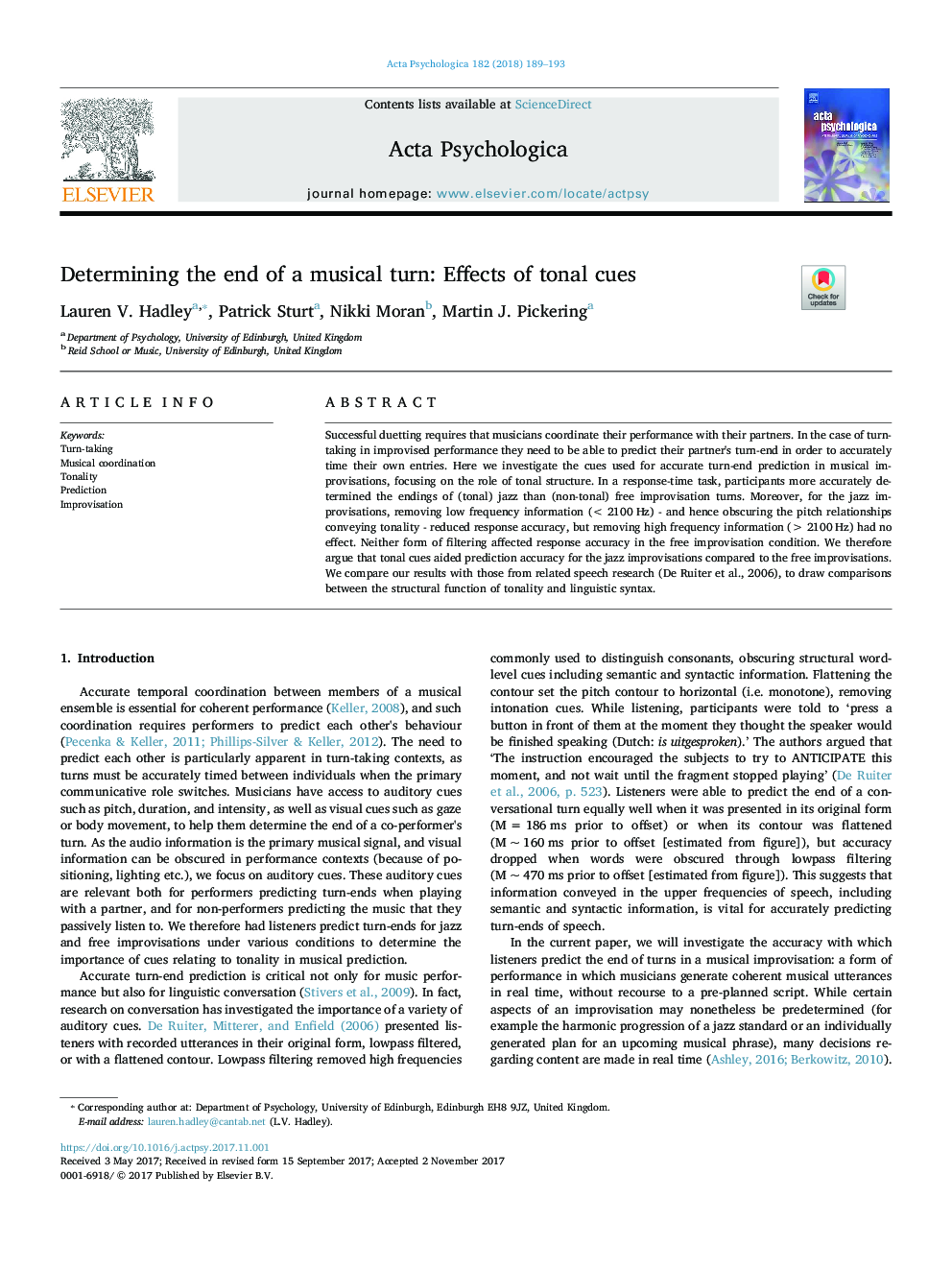| Article ID | Journal | Published Year | Pages | File Type |
|---|---|---|---|---|
| 7276910 | Acta Psychologica | 2018 | 5 Pages |
Abstract
Successful duetting requires that musicians coordinate their performance with their partners. In the case of turn-taking in improvised performance they need to be able to predict their partner's turn-end in order to accurately time their own entries. Here we investigate the cues used for accurate turn-end prediction in musical improvisations, focusing on the role of tonal structure. In a response-time task, participants more accurately determined the endings of (tonal) jazz than (non-tonal) free improvisation turns. Moreover, for the jazz improvisations, removing low frequency information (<Â 2100Â Hz) - and hence obscuring the pitch relationships conveying tonality - reduced response accuracy, but removing high frequency information (>Â 2100Â Hz) had no effect. Neither form of filtering affected response accuracy in the free improvisation condition. We therefore argue that tonal cues aided prediction accuracy for the jazz improvisations compared to the free improvisations. We compare our results with those from related speech research (De Ruiter et al., 2006), to draw comparisons between the structural function of tonality and linguistic syntax.
Related Topics
Life Sciences
Neuroscience
Cognitive Neuroscience
Authors
Lauren V. Hadley, Patrick Sturt, Nikki Moran, Martin J. Pickering,
